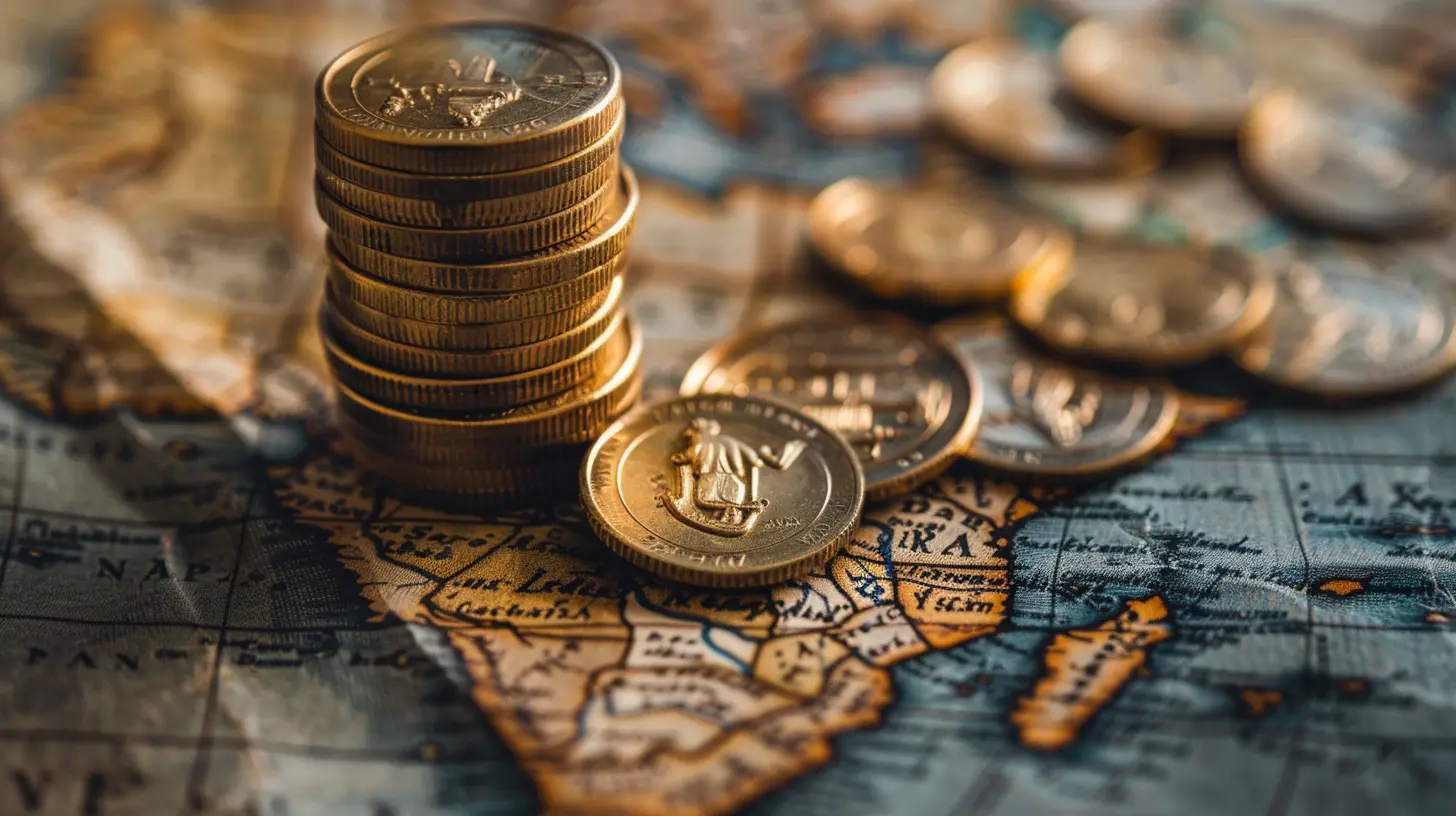A Practical Guide to Setting Up Offshore Accounts Legally
23 July 2025
When people hear the term "offshore account," they often picture shady deals and hidden money. But here's the truth: setting up an offshore bank account is 100% legal—if done correctly. In fact, businesses and individuals all over the world use offshore accounts for legitimate reasons, such as asset protection, currency diversification, and tax benefits.
If you're considering an offshore account, it's crucial to do it the right way. So, in this guide, we'll break it all down—what an offshore account is, why you might want one, and how to legally set one up without getting into trouble.

What is an Offshore Bank Account?
An offshore bank account is simply an account held in a foreign country outside your home country. It functions just like a regular bank account, allowing you to deposit money, make transfers, and even earn interest. The difference? Offshore banks are often located in financial hubs that offer more privacy, lower taxes, and financial stability.But let's be clear: an offshore account is not a way to evade taxes or hide money from your government. That’s illegal, and it can land you in serious trouble.

Why Open an Offshore Account?
So why do people bother with offshore banking? Here are some legitimate reasons:1. Asset Protection
Lawsuits, economic instability, and political risks can threaten your wealth. Offshore accounts help shield your assets from legal disputes or government overreach in your home country.2. Currency Diversification
Instead of keeping all your money in one currency, an offshore account allows you to hold multiple currencies. This can protect you from inflation or currency devaluation in your home country.3. Global Investment Opportunities
Offshore accounts often give you access to international investments that may not be available in your home country. Want to invest in European stocks or Asian real estate? An offshore account can help.4. Tax Optimization
While offshore banking is NOT a way to avoid taxes illegally, some countries have favorable tax laws that can reduce your tax burden. This is why many businesses open accounts in tax-friendly jurisdictions.5. Financial Privacy
Many offshore jurisdictions offer enhanced privacy for account holders. While they follow international regulations, they often provide more discretion compared to domestic banks.
How to Set Up an Offshore Bank Account Legally
Now that we’ve covered the why, let’s talk about the how. Setting up an offshore account involves several steps, and you need to follow them carefully to stay compliant with the law.1. Choose the Right Offshore Jurisdiction
Not all offshore banks are created equal. Some jurisdictions are known for financial stability, while others have a reputation for secrecy. Here are a few popular offshore banking destinations:- Switzerland – Known for strong privacy laws and stability.
- Cayman Islands – Popular for businesses and investors due to low taxes.
- Singapore – Regarded as one of the best financial hubs in Asia.
- Belize – Offers anonymity and asset protection.
- Isle of Man – Another strong option with solid financial regulations.
Before choosing a jurisdiction, research the country’s banking laws, reporting requirements, and political stability.
2. Select a Reputable Offshore Bank
Once you’ve picked a jurisdiction, the next step is choosing an offshore bank. Avoid shady institutions that promise secrecy over legitimacy. Instead, look for:✅ Banks with solid reputations and financial stability
✅ Institutions that follow international regulations (FATCA, AML, KYC)
✅ Reasonable account maintenance fees and deposit requirements
✅ Strong online banking and customer service
3. Gather the Required Documents
Offshore banks require thorough documentation to prevent fraud or illegal activities. Typically, you'll need:- A valid passport or government-issued ID
- Proof of address (utility bill, lease agreement)
- Bank reference letter from your current bank
- Proof of income (tax return, pay stubs, business records)
Some banks may ask for additional information, especially if you’re opening a business account. Be prepared to provide complete and transparent documentation.
4. Comply with Tax and Reporting Laws
One of the biggest mistakes people make is assuming offshore accounts are tax-free. While some jurisdictions have low or zero taxes, your home country may require you to report foreign accounts.For example, if you're a U.S. citizen, you must:
- File an FBAR (Foreign Bank Account Report) if your offshore account exceeds $10,000.
- Report your offshore income on your tax return.
Ignoring tax laws can lead to hefty penalties, so consult a tax professional to ensure compliance.
5. Make Your Initial Deposit
Most offshore banks require a minimum deposit to activate the account. This amount varies by bank and jurisdiction, ranging from a few hundred dollars to tens of thousands.6. Use Your Account Responsibly
Once your offshore account is up and running, use it wisely:✔ Keep accurate records of transactions.
✔ Maintain transparency with tax authorities.
✔ Avoid engaging in questionable financial activities.
Responsible offshore banking ensures that you stay on the right side of the law while enjoying the benefits of international banking.

Common Myths About Offshore Banking
There are plenty of myths surrounding offshore banking. Let’s bust some of the biggest ones.Myth #1: Offshore Banking is Only for the Super-Rich
While billionaires and corporations do use offshore accounts, they aren’t the only ones. Many small business owners, freelancers, and expats use them for legitimate financial planning.Myth #2: Offshore Accounts are Illegal
It’s completely legal to have an offshore account—provided you follow tax laws and report your income properly.Myth #3: Offshore Accounts are Only for Hiding Money
Yes, some people try to use offshore accounts to hide assets, but that’s illegal. Legitimate offshore banking is about financial diversification, asset protection, and global access—not dodging taxes.Myth #4: Opening an Offshore Account is Too Complicated
While there is some paperwork involved, opening an offshore account is usually straightforward—especially if you have the right guidance.Is Offshore Banking Right for You?
Not everyone needs an offshore account, but for some, it can be a smart financial move. Here’s when it makes sense to consider one:✅ You do business or earn income internationally.
✅ You want to protect your assets from lawsuits, political instability, or economic downturns.
✅ You travel frequently and need a global banking solution.
✅ You want to diversify your wealth across different currencies and jurisdictions.
However, if your only goal is to evade taxes or avoid financial responsibilities, steer clear—offshore banking isn't a loophole for avoiding legal obligations.
Final Thoughts
Offshore banking can be an excellent tool for protecting assets, diversifying wealth, and accessing global financial opportunities. However, it’s essential to do it the right way—by choosing a reputable bank, staying compliant with tax laws, and keeping everything transparent.If you’re serious about offshore banking, consider consulting a financial expert to ensure you're making informed decisions. Done legally and correctly, an offshore account can be a valuable part of a well-rounded financial strategy.
all images in this post were generated using AI tools
Category:
Offshore AccountsAuthor:

Audrey Bellamy
Discussion
rate this article
1 comments
Jade Bowman
Great article! Your clear insights on setting up offshore accounts legally are incredibly helpful. This will empower many to make informed financial decisions.
August 11, 2025 at 2:31 AM

Audrey Bellamy
Thank you for your kind words! I'm glad you found the article helpful.


